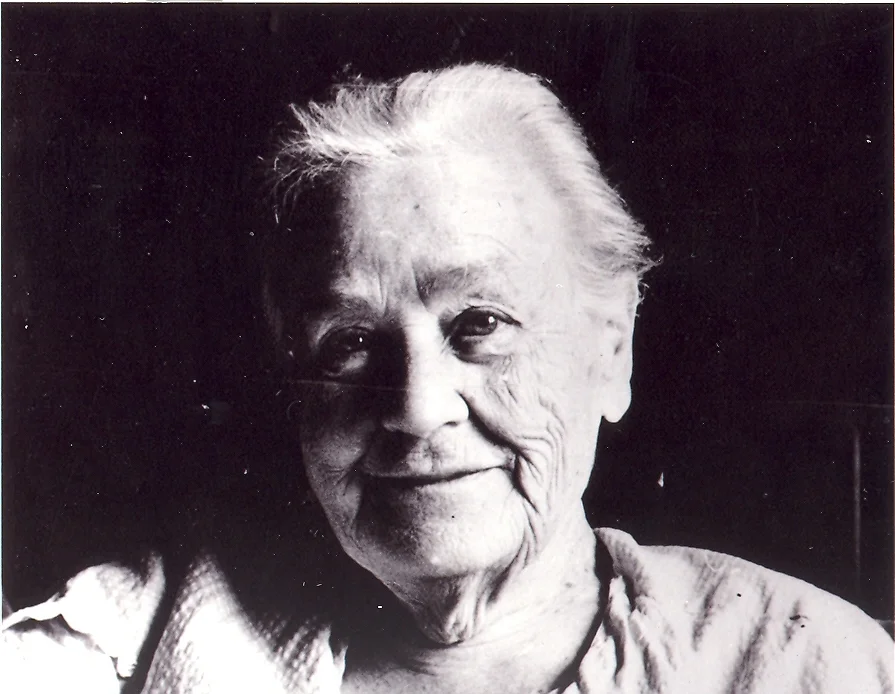Nurses on Horseback: Mary Breckinridge, Lilly Pulitzer, and the Frontier Nursing Service
This piece first ran on HerKentucky in March 2013. In honor of Nurses Appreciation Week, HerKentucky would like to thank all of the pioneers like Mary Breckinridge who established quality nursing care in the Commonwealth.
Yesterday, I read a biography of Lilly Pulitzer. Now, when I picked that book up, I expected to hear the story that we Lilly collectors have heard time and again -- a bored Palm Beach housewife started a juice stand and inadvertently became a fashion icon. Lilly's life took her from Westchester County to Southern Florida; I certainly didn't expect to find that there was a layover in the most remote corners of Eastern Kentucky in-between. It turns out that, after dropping out of college, the young woman then known as Lilly McKim undertook a stint as a nurse's aide at the Mary Breckinridge Hospital. Before she married into the famed Pulitzer publishing family or designed the dresses about which I obsess every spring, Lilly acted as both a nurse's aide and a courier, riding horses and mules to Frontier Nursing Service's outposts in Leslie, Perry, Clay, and Harlan Counties. It must have been some juxtaposition for a privileged young woman who'd attended prep school with Jacqueline Bouvier and her cousin Edith Bouvier Beale (Y'all -- Little. Edie.) to live and work in 1940s southeastern Kentucky. As I read Lilly's story, I tried to think of what life was like for the women who worked as midwives in that era. I also realized that, although I'd heard so many times that the Frontier School of Nursing and Mary Breckinridge Hospital were invaluable services for the areas just south of my hometown, I didn't know very much about their history.
Lilly Pulitzer in Palm Beach
It turns out that, like Lilly McKim, Mary Carson Breckinridge had a fascinating story of privilege. Born in Memphis in 1881, she was the daughter of a Congressman and the granddaughter of a Vice President . She spent much of her youth in St. Petersburg, after President Cleveland appointed her father as U.S. minister to Russia. Mary's early adulthood was marred by tragedy, including the unexpected loss of her first husband, a disastrous second marriage, and the deaths of her two young children. Mary relied upon faith and a commitment to public service as outlets for her grief. She studied nursing and became fascinated by the work of the nurse-midwife, which she learned about while working in Europe. At the time, midwifery training was not available in the United States, so she completed training in England. In 1925, Ms. Breckinridge returned to the States and founded the Kentucky Committee for Mothers and Babies, which would become the Frontier Nursing Service. By 1959, Frontier Nursing Service Midwives had attended over 10,000 home births.
Mary Breckinridge
Today, the Frontier Nursing Service operates a nursing school which offers Master and Doctoral level courses, maintains six rural clinics and a small hospital, and even operates Ms. Breckinridge's home as a Bed and Breakfast. Ms. Breckinridge's commitment to the health of women and children has led to to a better quality of life for countless Kentuckians. In addition to the lives saved from the midwives' service, the FNS has provided valuable educational and professional opportunities for a historically poor rural area. To this day, Mary Breckinridge Hospital is the second largest employer in Leslie County.
Ms. Breckinridge's story -- you can read more about her in her memoir "Wide Neighborhoods", which is available from University Press of Kentucky-- is truly inspiring. As I read of the Episcopal prayer services she led from her home every Sunday, I couldn't help thinking of my own family's stories of the commitment to decorum and manners that Alice Lloyd and June Buchanan maintained. No matter how long she lived on a college campus in a tiny Appalachian town, Miss June never failed to differentiate between a dress she'd wear for tea and one appropriate for breakfast.
As Women's History Month draws to a close, I am humbled at the thought that "society ladies" like Ms. Breckinridge, Mrs. Lloyd, Miss June, and my own style icon Mrs. Pulitzer traded in their lives of opulence to improve the lives of Eastern Kentucky. This isn't driving through a poor area and complaining about the lack of restaurants or cell signal, nor is it coming home from a Junior League charity project to open a bottle of wine and take a bubble bath. It's moving to a cabin in a town where you know no one -- in a time when there were barely roads or telephones. These ladies couldn't email or FaceTime, or use the Nordstrom's app to order new spring shoes. They moved their lives seemingly back in time to help others. Appalachian towns still benefit from these sacrifices decades later. It's an amazing legacy.



